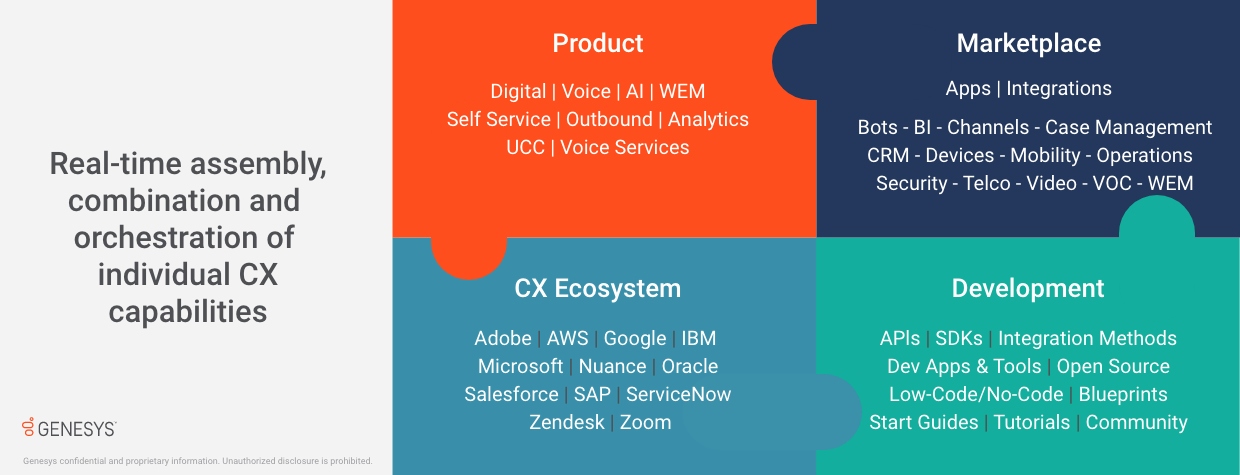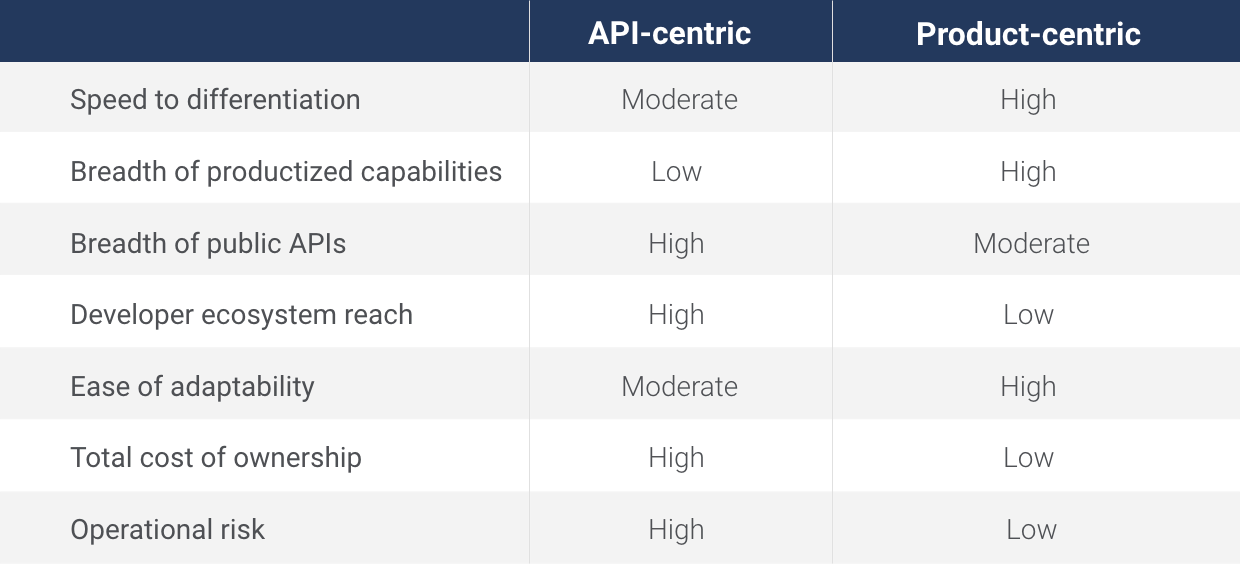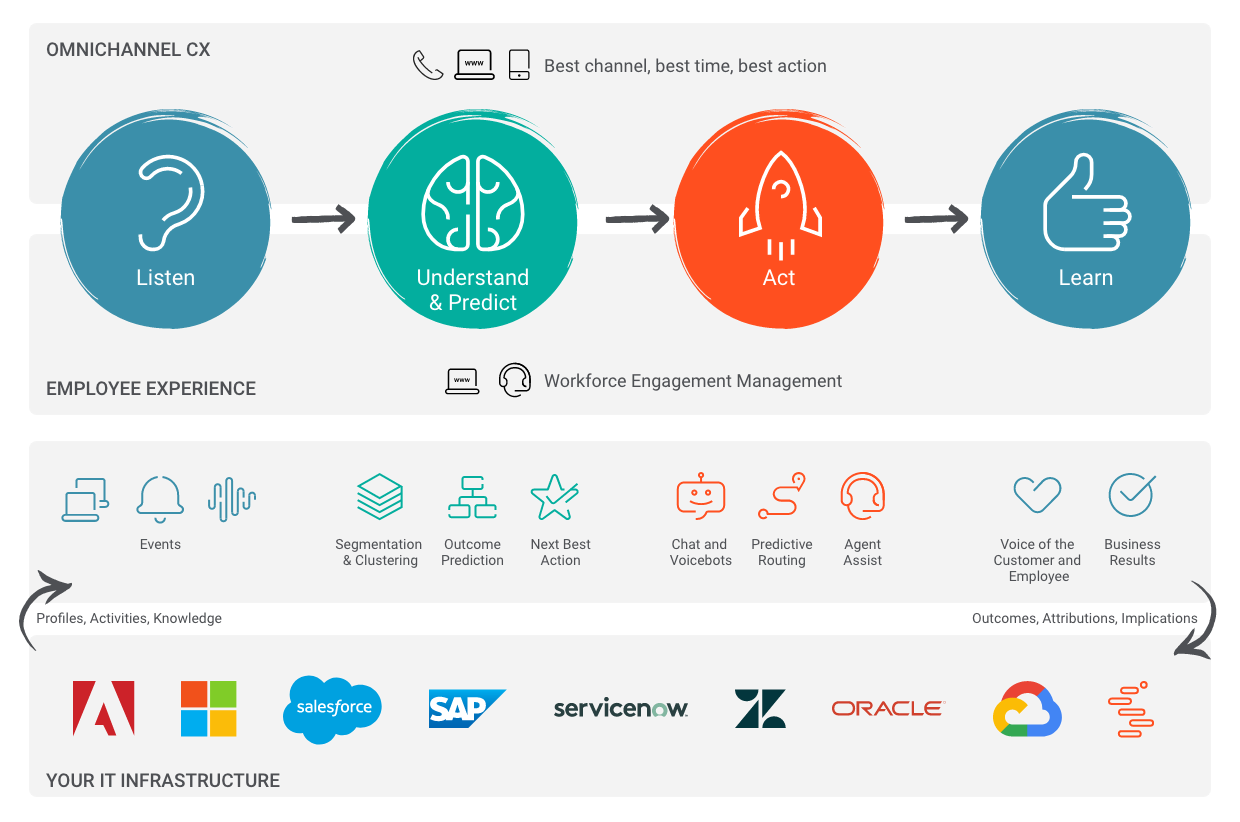Your Genesys Blog Subscription has been confirmed!
Please add genesys@email.genesys.com to your safe sender list to ensure you receive the weekly blog notifications.
Subscribe to our free newsletter and get blog updates in your inbox
Don't Show This Again.

Gartner believes the future of business is composable. What does that mean?
“Composable business is a natural acceleration of the digital business that you live every day. It allows us to deliver the resilience and agility that these interesting times demand… We’re talking about the intentional use of ‘composability’ in a business context — architecting your business for real-time adaptability and resilience in the face of uncertainty.”*
– Daryl Plummer, Distinguished VP Analyst at Gartner
We agree. Especially when it comes to creating empathetic experiences for customers and employees.
CTOs and CIOs often find it difficult to keep their customer experience architecture flowing toward the future while balancing value creation with keeping the lights on – especially with the increasing pace of change and uncertainty. Security and reliability are always job one, so complex and brittle architectures leave the business holding undifferentiated customer experiences — and waiting for what they need as the world changes around them. It’s ironic that, eventually, the lights start to flicker until change is inevitable and far more uncomfortable than it needs to be.
It shouldn’t be so hard to move toward sustainable customer experience differentiation. Everyone should have the level of resiliency and agility they expect — whether amid a crisis or during the normal flow of business. That’s where composable CX comes in.
Defining Composable CX
We define composable CX as customer and employee experiences architected for swift, sustainable differentiation in a way that delivers maximum resiliency and agility. And it enables every layer of the digital business to drive better outcomes in the face of increasing change and uncertainty.
This is done through the assembly, combination and orchestration of individual capabilities from the core product offerings, robust marketplaces, your greater customer experience ecosystem, and differentiating solutions that use open APIs and developer tools. And this is all powered by a modern cloud platform operating and evolving at hyperscale.

Composable CX requires companies to organize and execute differently. IT and the business come together with a continuous co-creation mindset. When a new threat, condition or opportunity emerges, pods form to evaluate, adapt and, when necessary, recreate the business to (continue to) deliver unique value to customers — no matter what comes your way.
The mix of capabilities — and how they’re applied — constantly evolve. Software as a Service (SaaS) features, marketplaces, customer experience ecosystems, APIs and differentiating solutions continuously add innovation. Organizations evolve to better manage and support change, too.
Composable CX Platform Options
Composable CX cloud platforms are truly open and take full advantage of modern cloud strategies and technologies. They’re built using an API-first approach backed with a modern continuous integration/continuous deployment (CI/CD) pipeline to achieve speed that’s never been experienced before. They leverage the power of microservices and treat infrastructure as code to deliver maximum resiliency, scale and innovation. They make it easy to integrate and exchange data with other systems. And they’re highly secure. Genesys Cloud is the archetype of a composable CX platform.
When choosing a specific platform, you have two primary options: API-centric or product-centric. The following table highlights a few key differences between these two approaches.

API-Centric
Mostly customized platforms are for companies wanting in-house developers and/or consultants to do most of the building, including capabilities that are universal and commercially available. Providers in this category offer a broad set of APIs and have an extensive developer ecosystem to augment in-house talent.
However, it takes companies longer to compose a complete, differentiated customer experience solution on such platforms. The complexity of the code base requires more time and resources to create, maintain and adapt complete solutions. Total cost of ownership (TCO) and operational risk are higher over time.
Product-Centric
Mostly productized platforms are for those wanting to pay for universally available capabilities and focus in-house developers or consultants on building what makes them unique. Providers in this category offer a broad set of productized capabilities and marketplace applications to differentiate your business faster — and to make it easier to adapt to changes.
TCO and operational risk are lower over time. However, API sets and developer ecosystems that augment in-house talent can be less extensive. And that could limit companies in terms of what they can build themselves.
It’s important to note that most Contact Center as a Service (CCaaS) providers with extensive productized feature sets lack modern, open cloud platforms. Therefore, they aren’t truly composable.
Top Five Considerations When Choosing a Composable CX Platform
It’s important to understand the difference between API-centric and product-centric options. But there’s more to consider than just that.
Here are the top five things IT leaders should consider when choosing a composable CX platform.
Work with your team to see how each platform on the shortlist stacks up. Be sure to identify critical success criteria that’s unique to your company — and evaluate them against that as well. Finally, put it all together and make the best choice for your business.
The future of business is composable. CIOs and CTOs embracing composable CX principles are architecting their digital business for real-time adaptability and resilience in the face of uncertainty. And they’re building differentiation faster to deliver more empathetic customer and employee experiences and better results — putting empathy into action.

You can, too. Think big. Challenge your team to create experiences that others have yet to imagine. Leave customers feeling surprised and grateful they’ve connected with your brand. And keep the business protected every step of the way. Drive sustainable differentiation — no matter what comes your way.
* Smarter With Gartner, Gartner Keynote: The Future of Business Is Composable, October 2020.
Subscribe to our free newsletter and get blog updates in your inbox.